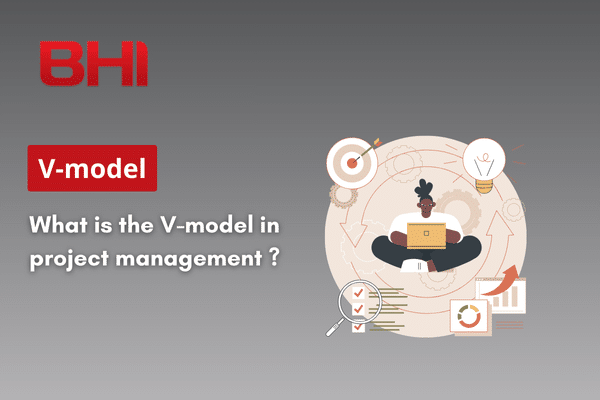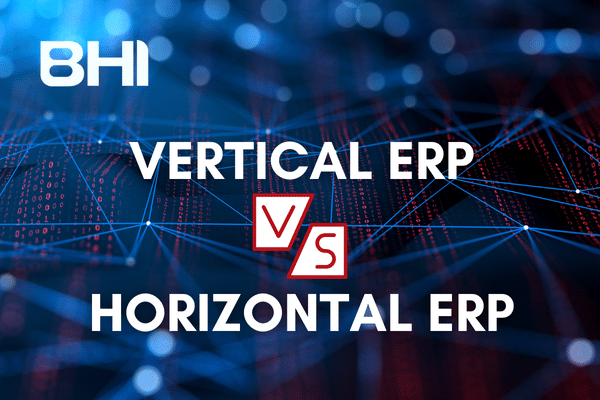In a context where digital transformation is accelerating and companies seek flexibility and performance, hybrid cloud is emerging as a reference solution for ERP systems. This approach redefines how organizations manage their resources and critical data.
The Emergence of Hybrid Cloud in the ERP Ecosystem
According to Mag Akuiteo, 85% of companies will have adopted a cloud-first strategy by the end of 2025, and among them, 72% will favor a hybrid approach for their critical systems. This trend marks a decisive turning point in ERP system management, confirmed by the strong progression of cloud ERP solutions (nearly 80 to 85% of deployments in SaaS in 2024).
Hybrid cloud combines on-premises infrastructure with public or private cloud services, allowing for the reconciliation of security, control, flexibility, and scalability.
Why is Hybrid Cloud Becoming Essential ?
The Quest for Balance Between Control and Innovation
Hybrid cloud allows for keeping sensitive data (financial, personal, industrial) on-site to meet regulatory requirements (GDPR, etc.), while leveraging cloud power for innovation (analytics, AI, collaboration).
- Keep critical data on-premise: Sensitive financial information, personal data subject to GDPR, or industrial secrets can remain in the company’s local infrastructure.
- Leverage cloud power for innovation: Advanced analytics, artificial intelligence, or collaboration modules can run in the cloud, benefiting from the latest technological innovations.
The Numbers Speak
The hybrid cloud market is expected to reach $145 billion by 2026, with an annual growth rate of 17%. For ERPs, 67% of companies surveyed by Forrester Research plan to migrate to a hybrid architecture within the next two years.
For the global ERP market, 2024 estimates are $160.12 billion, with a projection to $200 billion in 2025 and an average annual growth of 4.3 to 5%.
Concrete Benefits of Hybrid Cloud for ERP
1. Maximum Operational Flexibility
Hybrid cloud offers increased agility: companies can adjust their resources in real-time according to their needs, for example during accounting closures or activity peaks.
2. Cost Optimization
Hybrid cloud can reduce infrastructure costs, with savings potentially reaching up to 35% according to some studies (to be nuanced according to contexts). The pay-as-you-go payment model and reduced maintenance costs are recognized benefits, but precise figures must be adapted to each case.
3. Enhanced Security and Compliance
Hybrid cloud allows maintaining control over sensitive data while benefiting from advanced cloud security mechanisms (encryption, authentication, etc.), which facilitates regulatory compliance.
4. Increased Performance and Availability
Hybrid architectures generally offer high availability (up to 99.95%) and increased resilience through the ability to switch between environments.
Implementation Challenges and Their Solutions
Technical Complexity
Managing a hybrid infrastructure requires specific skills. Companies must:
- Train their IT teams in cloud technologies
- Implement unified management tools
- Establish clear governance processes
System Integration
Interconnection between on-premise and cloud systems requires:
- Robust and secure APIs
- Consistent data architecture
- Reliable synchronization mechanisms
Change Management
Hybrid cloud adoption implies a cultural transformation that companies must accompany with:
- Transparent communication about benefits
- Adapted training for users
- Continuous support during transition
Concrete Use Cases by ERP Solution
Oracle JD Edwards in Hybrid Mode
Companies using JD Edwards can keep their main database on-premise while deploying analytical modules in Oracle Cloud Infrastructure. This approach allows exploiting advanced analytics capabilities without compromising transactional data security.
SAP S/4HANA and Hybridization
SAP S/4HANA excels in hybrid deployments thanks to :
- SAP Cloud Platform for functionality extension
- The ability to keep the ERP core on-premise
- Native integration with third-party cloud services
Oracle eBusiness Suite: Progressive Migration
Companies can adopt a progressive approach :
- Migration of non-critical modules to the cloud
- Performance testing and validation
- Gradual extension according to needs
Impact on Different Sectors
Manufacturing Industry
Hybrid cloud allows manufacturers to :
- Connect their production systems (remaining on-premise) with cloud predictive analytics solutions
- Optimize supply chain through real-time data
- Maintain security of sensitive production data
Financial Services
For banks and insurance companies, hybrid cloud offers:
- Facilitated regulatory compliance (customer data on-premise)
- Accelerated innovation with cloud services (AI, blockchain)
- Scalability to handle peak loads
Distribution and Retail
Distributors benefit from:
- Smooth omnichannel management
- Real-time analysis of customer behaviors
- Flexibility for high-activity periods
Best Practices for Successful Transition
- Define a clear strategy (mapping, identification of critical data, progressive migration plan)
- Choose experienced partners (mastery of cloud and on-premise, sectoral support)
- Adopt a progressive approach (proof of concept, migration of non-critical workloads, progressive extension)
The Future of Hybrid Cloud for ERP
Emerging Trends
The coming years will see the emergence of:
- Integrated edge computing : Data processing closer to its source
- Native AI/ML : Artificial intelligence natively integrated into hybrid architecture
- Advanced automation : Autonomous resource management between cloud and on-premise
Conclusion: Hybrid Cloud, Catalyst for Transformation
Hybrid cloud is establishing itself as a necessity for companies wishing to remain competitive. It combines the flexibility, security, and performance required by modern organizations, while promoting cost reduction, agility, and innovation. This approach allows transforming the company while preserving its existing assets, making it the reference solution for ERPs in 2025.
Ready to discuss your hybrid cloud migration project ?
Contact our experts at +33 (0)1 83 62 12 23 or via our contact form. Together, let’s explore how to make your transition to a hybrid ERP architecture a measurable and sustainable success.

















